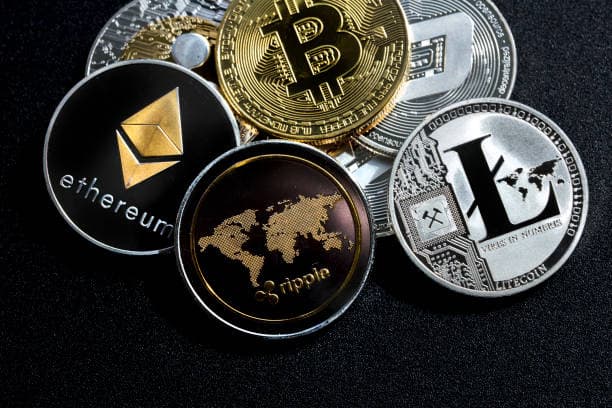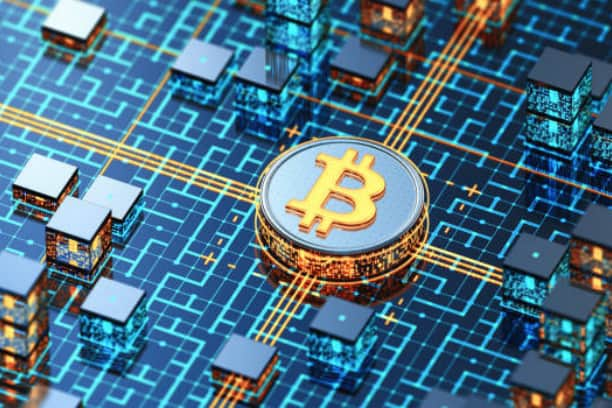Why is Bitcoin worth money? (Why Bitcoin is worth investing in)
Why is Bitcoin, the digital asset that has become the talk of the cryptocurrency world, so valuable? It is not only a new financial instrument, but also represents a financial revolution. As the world's trust in the traditional monetary system is shaken, Bitcoin, as a decentralized asset, is gradually attracting the attention of investors. Whether as an asset for preservation, a hedge against inflation, or a leader in digital assets, the value of Bitcoin continues to rise. Today, we'll take a closer look at why Bitcoin is worth investing in and analyze the real value behind it.

Bitcoin Scarcity: The Rise of Digital Gold
One of the best features of Bitcoin is its scarcity. The total number of Bitcoins is encoded in its blockchain and is fixed at 21 million, a number that has never changed. Unlike traditional currencies, Bitcoin is not issued by the government as it prints money, making Bitcoin a "digital gold" similar to gold. This scarcity gives Bitcoin the potential to preserve and increase in value, especially in the face of rising global inflationary pressures and currency depreciation, and more and more investors are choosing Bitcoin as a tool to combat inflation. According to recent data, the market capitalization of Bitcoin has exceeded one trillion US dollars, making it the most valuable cryptocurrency in the world.
How does scarcity affect the value of Bitcoin?
Compared to fiat currencies, the supply of Bitcoin is limited. The block award of Bitcoin takes place every ten minutes and is halved every four years, which means that the number of new Bitcoins added each year decreases year by year, a mechanism that effectively avoids the risk of inflation. This mechanism effectively avoids the risk of inflation. According to the basic principles of economics, when demand remains stable or rises, but supply fails to increase, the price will naturally rise. This is why Bitcoin has reached record highs over the past few years.
Bitcoin's decentralized nature: avoiding financial censorship and manipulation
Another major feature of Bitcoin is its decentralized operation. Instead of being issued and controlled by a central bank or government agency like traditional currencies, Bitcoin is decentralized through blockchain technology. Blockchain is a decentralized ledger technology where all transactions are publicly recorded and verified, and anyone can participate in the network, making Bitcoin independent of any single institution. For many investors, this decentralized nature means that they can avoid the risks that can occur in the traditional financial system, such as manipulation by financial institutions and government intervention.
Why is decentralization critical to the value of Bitcoin?
In the global economy, the currencies of many countries and regions are affected by government policies, especially during economic crises or inflation, when currency values may fluctuate significantly. Bitcoin's decentralized operation effectively avoids these problems because it does not rely on any government or institution to intervene. With the instability of the financial markets, more and more investors are looking to Bitcoin as a hedge. Especially in places like Taiwan, Bitcoin's decentralized nature provides additional confidence if faced with external economic uncertainty.
Bitcoin's Blockchain Technology: Guaranteeing Transparency and Security
Bitcoin has maintained its value thanks to the blockchain technology behind it. Blockchain is a publicly available decentralized ledger that effectively ensures the transparency and security of transactions. Each Bitcoin transaction is recorded in a block and verified at each node in the network, eliminating the possibility of tampering. The transparency and security of this technology is the foundation of Bitcoin's ability to become a globally trusted digital asset.

How Blockchain Enhances Bitcoin's Trust and Value
Due to the transparent nature of blockchain, every transaction can be tracked and verified globally, which means that the Bitcoin transaction process is open and transparent, and no one can hide transaction details or tamper with them. This makes Bitcoin a highly trustworthy asset, providing a higher level of trust for both investors and users.
Bitcoin's Global Recognition: Gradual Acceptance by Mainstream Financial Markets
Bitcoin is not just for some blockchain enthusiasts, it has gradually entered the mainstream financial market. More and more enterprises, organizations and individuals have begun to accept Bitcoin as a means of payment, and some countries and regions have even legalized Bitcoin as part of payment. Especially in the United States, Europe and some Latin American countries, there are large corporations or financial institutions that have begun to trade in Bitcoin and use it as part of their asset allocation. This trend has led to a steady increase in the value of Bitcoin and has contributed to its transformation from a "virtual currency" to a "digital asset".
How does the future outlook for Bitcoin affect its value?
As more and more organizations and countries begin to accept Bitcoin, this not only increases the market demand for Bitcoin, but it also means that Bitcoin's liquidity will further increase. If Bitcoin can become a global payment standard or part of asset allocation, its value is bound to rise further. With the popularization of blockchain technology, Bitcoin is also expected to play a role in more industries, which will help drive Bitcoin's long-term appreciation.
Frequently Asked Questions Q&A
Q1: Why does the price of Bitcoin fluctuate so much?
A1: The price volatility of Bitcoin is mainly due to changes in market supply and demand. Since the total volume of Bitcoin is fixed and the demand is affected by factors such as market sentiment, government policies, and acceptance by financial institutions, its price may fluctuate significantly. As the Bitcoin market is relatively new, the trading volume and depth of the market have not yet reached a stable state, and therefore it is also susceptible to large capital flows.
Q2: How do I start investing in Bitcoin?
A2: It's easy to start investing in Bitcoin. All you need to do is open an account on an exchange that supports Bitcoin trading (e.g., Euronext, Binance, etc.), complete your identity verification, and then you can buy and trade Bitcoin. When choosing an exchange, please pay attention to the security of the exchange, the commission rate, and whether it supports trading in Taiwan.
Q3: Is Bitcoin a good long-term investment?
A3: Bitcoin, as a digital asset, has a high potential for long-term appreciation, especially against the backdrop of global currency depreciation and rising inflationary pressures. Many investors consider Bitcoin as a hedge against inflation and hold it for a long time. Of course, investing in Bitcoin requires attention to its volatility risk and is suitable for investors with higher risk tolerance.














